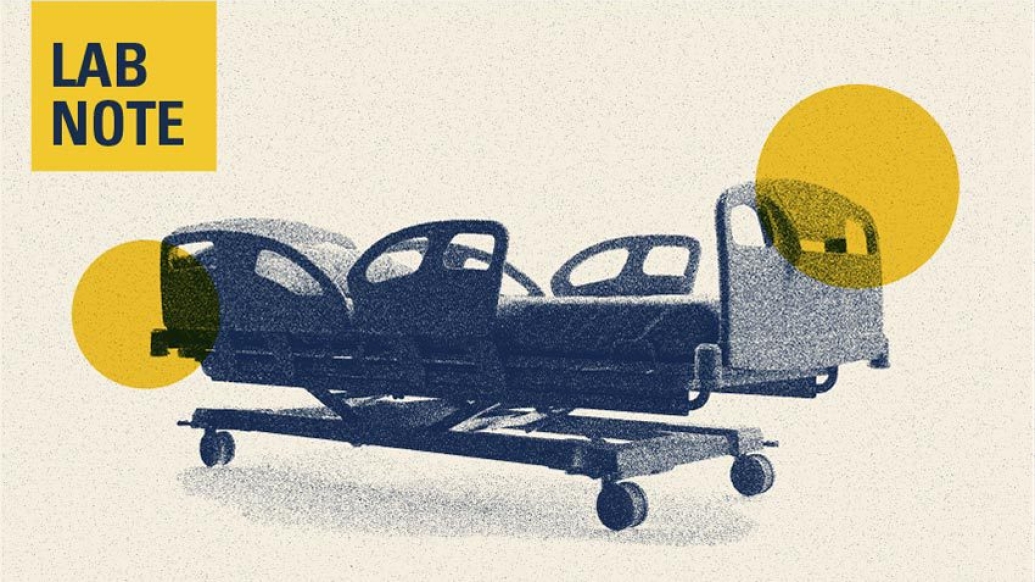Patients with private insurance or Medicare Advantage could receive large bills for a COVID-19 hospitalization now that waivers of out-of-pocket costs have ended.
11:22 AM
Author |

It's been about a year since many health insurance companies started billing hospitalized COVID-19 patients for part of the cost of their care, after waiving co-pays, deductibles and other cost-sharing for the first year of the pandemic. Those waivers were voluntary, and companies began to roll them back in early 2021.
Now, a study based on newly available data shows that getting hospitalized for a serious case of COVID-19 could mean bills averaging $1,600 to $4,000 for many patients.
More than 80% of people with private insurance through a job or other source, and 66% of people enrolled in Medicare Advantage, who had COVID-19 hospitalizations paid part of the cost out-of-pocket in early 2021, according to the new paper published in JAMA Network Open by a team from the University of Michigan and Boston University. The percentages now are likely closer to 100%, as almost all insurers had started charging hospitalized COVID-19 patients again by late 2021.
The percentage of hospitalized COVID-19 patients who were billed for their care shot up dramatically in February 2021. The amounts they were charged for hospital services ranged widely depending on how many days they stayed, with higher bills for those with prolonged hospitalizations.
Among people with private insurance who were billed for COVID-19 hospitalization, the average out-of-pocket cost was nearly $4,000, compared with about $1,600 for people with Medicare Advantage plans. This total includes all costs associated with hospital care, including both hospital and physician services.
The new findings build on a previous study from the same team that estimated out-of-pocket costs for the small number of patients hospitalized for COVID-19 in 2020 whose insurance plans did not have a waiver in place. The dollar amounts in the new study are similar to those in the previous study, but are based on more recent data and a much larger number of hospitalizations i
Both studies have implications for both policymakers and people who haven't yet gotten vaccinated, as well as people with underlying conditions that put them at risk of a severe breakthrough case of COVID-19, says lead author Kao-Ping Chua, M.D., Ph.D., a health policy researcher and pediatrician at Michigan Medicine and the Susan B. Meister Child Health Evaluation Research Center.
"My main concern is that the threat of high bills will dissuade some patients from seeking care even though they are seriously ill", Chua said. To avoid this, he believes that federal policymakers could consider requiring insurers to waive costs of COVID-19 hospitalization-related care throughout the pandemic – just as they already do for COVID-19 testing and vaccination.
The study analyzes data from 16,450 COVID-related hospitalizations of people with private insurance and Medicare Advantage insurance between March 2020 and March 2021. The data come from the IQVIA PharMetrics Plus for Academics Database, which includes claims data from multiple insurers across the U.S.
The co-authors of the paper are Dr. Nora Becker, M.D, Ph.D., from Michigan Medicine, and Dr. Rena Conti, from Questrom Boston University School of Business.
Paper cited: "Trends in and Factors Associated With Out-of-Pocket Spending for COVID-19 Hospitalizations From March 2020 to March 2021," JAMA Network Open. DOI: 10.1001/jamanetworkopen.2021.48237

Explore a variety of healthcare news & stories by visiting the Health Lab home page for more articles.

Department of Communication at Michigan Medicine
Want top health & research news weekly? Sign up for Health Lab’s newsletters today!





